Our March 2021 virtual conference conference, Women Challenging Expectations, was a smashing success. Here are some statistics.
- Total Video Content Produced: 9 hours, 27 minutes
- Total Presentations: 10 (9 recorded and presented on this page)
- Total Attendees over the 3-day Online Event: 413
- Number of People Who Had to Travel to Attend: 0
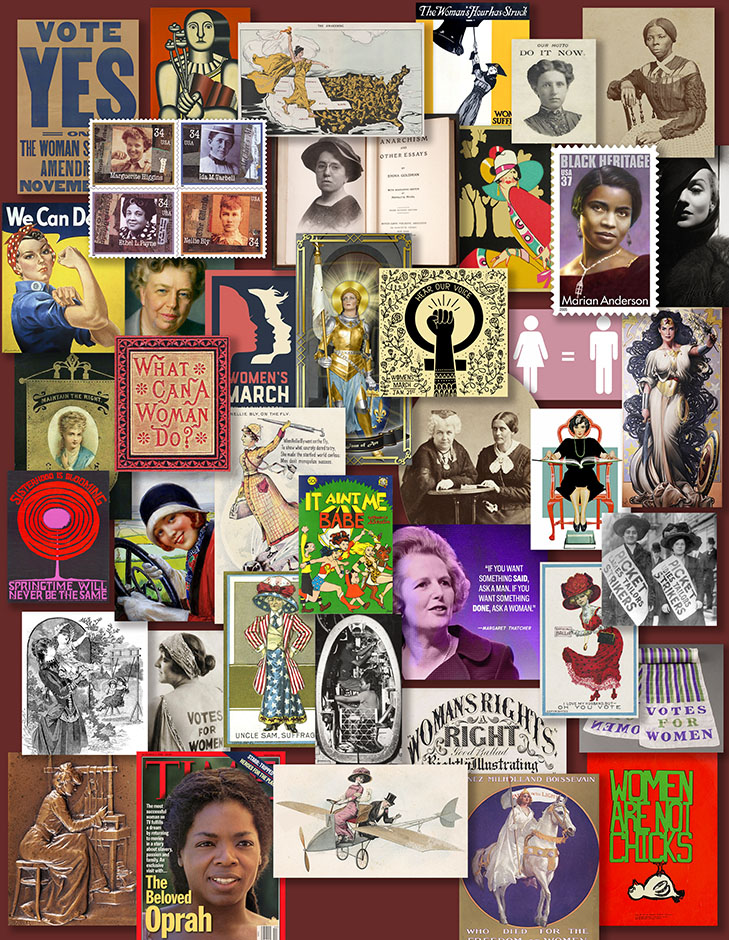
We started off with our 2021 conference with two preview presentations in January. For both the January presentations and the March main event, the time stamp and a description of each presentation and presenter is below each video.
January Preview
Richard Sheaff Timestamp: 00:00:34
Welcome to all!
Brooke Kroeger Timestamp: 00:03:46
The Branded Journalist: Nellie Bly Changes the Game
Elizabeth Cochrane, writing as Nellie Bly (from an 1850 Stephen Foster song), had her name in the headline of every story she ever wrote. She embodied “That New American Girl,” celebrated in souvenirs, trade cards, poems, and board games (from several manufacturers) for her undercover investigations and her lightning trip around the globe for Joseph Pulitzer’s New York World 1889-1890.
Brooke Kroeger is a professor of journalism at New York University and the author of five books: Nellie Bly: Daredevil, Reporter, Feminist; Fannie: The Talent for Success of Author Fannie Hurst; Passing: When People Can’t Be Who they Are; Undercover Reporting: the Truth about Deception; and most recently The Suffragents: How Women Used Men to Get the Vote.
Barbara Rusch Timestamp: 00:58:38
Women: Defying the Constraints of Victorian Undergarments
Among critics of the circumscription of women’s bodies were: Amelia Bloomer and her rational dress; actress Lily Langtry who advocated an eponymous bustle for its beneficial improvements and user-friendly attributes; Florence Nightingale, heroine of the Crimea, who flatly rejected both the constraints of the crinoline and the drawing room; Actress Sarah Bernhardt, whose decision to cast off her stays caused a sensation; Queen Victoria, whose second-most-famous pronouncement, “We will not be dictated to,” took her from icon to iconoclast. In a sense, the path to women’s emancipation began from the bottom up, from the top down, and from the inside out.
Barbara Rusch is the founder and president of The Ephemera Society of Canada and has served on the Board of Directors of the ESA. She is the recipient of the Ephemera Society (UK) Samuel Pepys Medal, The Ephemera Society of America Maurice Rickards Award and the 2012 Queen Elizabeth II Diamond Jubilee Medal. Listed in Canadian Who’s Who as its only ephemerist, she is a lecturer, collector, and exhibitor of 19th-century ephemera. Her play, The Crossing, featuring ephemera from her collection, was published in 2019 by the Toronto Public Library Foundation
March Main Event
Day One
Richard Sheaff Timestamp: 00:02:10
Welcome and Introduction
Lisa Baskin Timestamp: 00:07:43
Hoop Makers to Layers Out of the Dead: A Few Centuries of Working Women
The notion that women have not worked outside their homes except in the traditional roles assigned to them, such as teaching or nursing, is challenged by the physical evidence that exists chronicling the breadth of their participation in vocations that we assume were closed to them. Often documented by a single ephemeral bit of evidence, we now understand that women participated in myriad vocations and made significant contributions throughout the centuries.
Brooklyn-born Lisa Baskin is a political activist, collector, book dealer and antiquarian. She jokes that she collected in the cradle. The product of her efforts, a comprehensive collection documenting the political and social history of working women from the fifteenth century to the Spanish Civil War, is now part of the David M. Rubenstein Library at Duke University.
Caroline Preston Timestamp: 01:12:34
Sylvia Beach: 1920’s Paris Publisher and Bookseller
Sylvia Beach is a feminist icon in modern literary history who supported struggling expat writers in her Paris bookshop in the 1920s and who dared to publish James Joyce’s banned novel, Ulysses. Shakespeare and Company became an informal salon for the American writers who were flocking to Paris after WWI—including Ernest Hemingway, John dos Passos, Ezra Pound, E.E. Cummings, and Gertrude Stein. Beach was a childhood friend of the presenter’s grandmother, who bequeathed personal ephemera about Joyce and the bookshop. The Sylvia Beach Collection at Princeton University more broadly reveals café literary life in 1920s Paris.
Caroline Preston’s innovative “scrapbook” novels are created from her extensive collections of ephemera, letters, documents and images. The Scrapbook of Frankie Pratt won a 2012 Alex Award. She has taught fiction at the University of Virginia and workshops on the graphic novel at George Mason and other colleges. She has received fellowships from Yaddo and the Virginia Center for the Creative Arts and is a distinguished artist at the Ragdale Foundation. She has worked as an archivist at the Peabody/Essex Museum and Harvard’s Houghton Library.
Heidi Herr and students Timestamp: 02:04:10
Votes & Petticoats: Collecting Suffrage Ephemera for Student Enrichment
2020 was the centenary of the ratification of the 19th Amendment, giving the majority of women in America the right to vote. Ephemera created by advocacy groups for the American and English women’s suffrage movement was crucial in raising awareness for the cause and answering objections to it in powerful and colorful ways. The women’s suffrage collection at Johns Hopkins University highlights how suffragists made ephemera that, even in today’s oversaturated visual culture, would ‘go viral.’
Heidi Herr is the Outreach Librarian for Special Collections at Johns Hopkins University. She creates programs and learning activities to engage students in conducting research with primary sources, including teaching courses on everything from fortune-telling ephemera to the development of the cookbook. She holds Master of Arts degrees in English and Library Science from the University of Maryland, College Park.
Day Two
Richard Sheaff Timestamp: 00:01:25
Welcome and Introduction
A’Lelia Bundles Timestamp: 00:06:16
Inside the Madam C. J. Walker Family Archives
A’Lelia Bundles — whose biography On Her Own Ground: The Life and Times of Madam C. J. Walker was the inspiration for Self Made, the 2020 Netflix series starring Octavia Spencer – will share items from her Madam Walker Family Archives. Among her earliest childhood memories is exploring a dresser drawer that included mother-of-pearl opera glasses and miniature mummy charms from Egypt that had belonged to her great-grandmother, A’Lelia Walker, the daughter of Madam Walker. Nearly 70 years later, she has created the largest private collection of Walker ephemera. Her fifth book, The Joy Goddess of Harlem: A’Lelia Walker and the Harlem Renaissance, will be published by Scribner in 2021.
A’Lelia Bundles is the author of On Her Own Ground: The Life and Times of Madam C.J. Walker, the inspiration for Self Made, the 2020 Netflix series. She is at work on a biography of A’Lelia Walker, her great-grandmother, whose parties, arts patronage and international travels helped define the Harlem Renaissance. A former network television news executive and producer at ABC News and NBC News, she is a vice chairman of Columbia University’s Board of Trustees and chair emerita of the board of the National Archives Foundation. She is on the advisory boards of the Schlesinger Library on the History of Women in America at Harvard’s Radcliffe Institute and the Smithsonian’s American Women’s History Initiative.
Amanda Bede Timestamp: 01:15:19
Australian Activist – Doris Blackburn
Doris Blackburn (1889-1970) was an activist in Australian political and social life — in electoral reform, anti-conscription, peace, education, women’s rights, and First People’s rights. In 1913, she was secretary for a leading suffragette standing for federal parliament; in 1916-17 she campaigned against conscription to boost Australian forces in WW1; in the 1920s, she was president of the Women’s International League for Peace and Freedom and also supported educational innovations. She was elected to parliament for one term as an independent in 1946, her key policies being family support, housing welfare and opposition to guided missiles. She was co-founder of the Aborigines Advancement League.
Amanda Bede, a member of the Royal Historical Society of Victoria, is a researcher, writer, and collector concentrating on ephemera. She is an honorary life member of the Ephemera Society of Australia and currently president and editor of the Ephemera Journal of Australia. She became involved with ephemera while working as a research librarian at the State Library of Victoria in the 1980s. She co-authored Working Victoria: a guide to the study of work.
Susan Anderson Laquer Timestamp: 02:15:18
Evidence of Genius: Barbara McClintock’s Scientific Ephemera
The maize geneticist Barbara McClintock (1902-1992) is credited with the discovery of “jumping genes,” or how chromosomes are able to “cross over” and translocate along the DNA strand. She received the Nobel Prize in Physiology or Medicine in 1983. Her career can be understood through her papers – particularly her research notes – preserved at the American Philosophical Society.
Susan Anderson Laquer, archivist at the American Philosophical Society, has had a distinguished career in Philadelphia-area archives for 25 years, working at the Philadelphia Museum of Art and in the library and archives at Pennsylvania Hospital. Susan is a leader in collections management and has published essays on “Ethics, Privacy, and Restrictions” and “Fundraising” in the Society of American Archivists’ publications.
Virginia Noelke Timestamp: 03:15:21
Three Women in West Texas
Frontier conditions in the American West helped to liberate women from 19th century cultural expectations. Johanna Wilhelm, who came to Texas from Germany in 1868 and was widowed in 1890, became the “Sheep Queen of Texas” for the quality of her livestock at her 40,000 acre ranch. Annie Tankersley migrated from Mississippi to Texas in 1859 to raise cattle among the Kickapoo and other tribal groups. After divorce, she ran a hotel and became famous for physically protecting a fellow citizen from an angry mob of soldiers intent on killing him. The presenter is the title’s third woman to find West Texas a liberating environment.
Virginia Noelke holds a PhD in American Civilization from the University of Texas at Austin. She served on the Postal Service Citizens’ Stamp Advisory Committee for almost 30 years learning about art and graphics from experts such as Dick Sheaff. She taught history at Angelo State University for thirty-five years, and has written about women in the West, as well as a history of the Cactus Hotel.
Our 2021 Virtual Conference Speakers
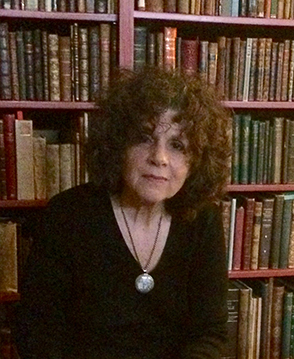
LISA BASKIN
Hoop Makers to Layers Out of the Dead: A Few Centuries of Working Women
Brooklyn-born Lisa Baskin is a political activist, collector, book dealer and antiquarian. She jokes that she collected in the cradle. The product of her efforts, a comprehensive collection documenting the political and social history of working women from the fifteenth century to the Spanish Civil War, is now part of the David M. Rubenstein Library at Duke University.

A’LELIA BUNDLES
Inside the Madam C. J. Walker Family Archives
A’Lelia Bundles is the author of On Her Own Ground: The Life and Times of Madam C.J. Walker, the inspiration for Self Made, the 2020 Netflix series. She is at work on a biography of A’Lelia Walker, her great-grandmother, whose parties, arts patronage and international travels helped define the Harlem Renaissance. A former network television news executive and producer at ABC News and NBC News, she is a vice chairman of Columbia University’s Board of Trustees and chair emerita of the board of the National Archives Foundation. She is on the advisory boards of the Schlesinger Library on the History of Women in America at Harvard’s Radcliffe Institute and the Smithsonian’s American Women’s History Initiative.
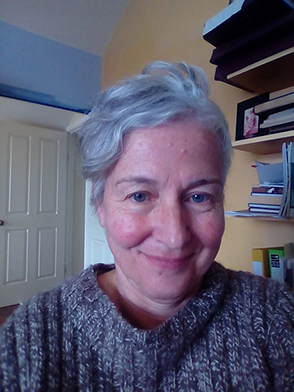
AMANDA BEDE
Australian Activist – Doris Blackburn
Amanda Bede, a member of the Royal Historical Society of Victoria, is a researcher, writer, and collector concentrating on ephemera. She is an honorary life member of the Ephemera Society of Australia and currently president and editor of the Ephemera Journal of Australia. She became involved with ephemera while working as a research librarian at the State Library of Victoria in the 1980s. She co-authored Working Victoria: a guide to the study of work.
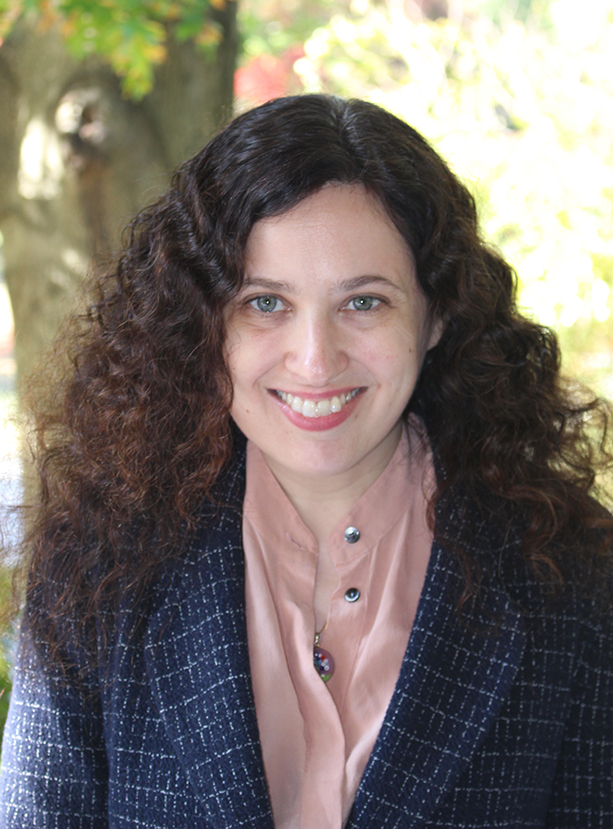
HEIDI HERR
Young Scholars Presentation – Using Suffrage Ephemera as a Learning Tool.
Heidi Herr is the Outreach Librarian for Special Collections at Johns Hopkins University. She creates programs and learning activities to engage students in conducting research with primary sources, including teaching courses on everything from fortune-telling ephemera to the development of the cookbook. She holds Master of Arts degrees in English and Library Science from the University of Maryland, College Park.
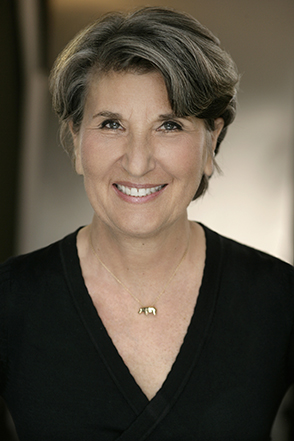
BROOKE KROEGER
The Branded Journalist: Nellie Bly Changes the Game
Brooke Kroeger is a professor of journalism at New York University and the author of five books: Nellie Bly: Daredevil, Reporter, Feminist; Fannie: The Talent for Success of Author Fannie Hurst; Passing: When People Can’t Be Who they Are; Undercover Reporting: the Truth about Deception; and most recently The Suffragents: How Women Used Men to Get the Vote.
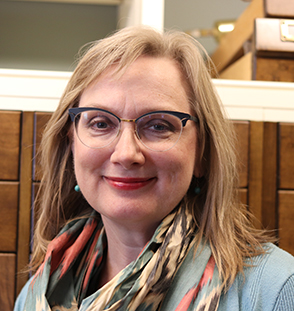
SUSAN ANDERSON LAQUER
Evidence of Genius: Barbara McClintock’s Scientific Ephemera
Susan Anderson Laquer, archivist at the American Philosophical Society, has had a distinguished career in Philadelphia-area archives for 25 years, working at the Philadelphia Museum of Art and in the library and archives at Pennsylvania Hospital. Susan is a leader in collections management and has published essays on “Ethics, Privacy, and Restrictions” and “Fundraising” in the Society of American Archivists’
publications.
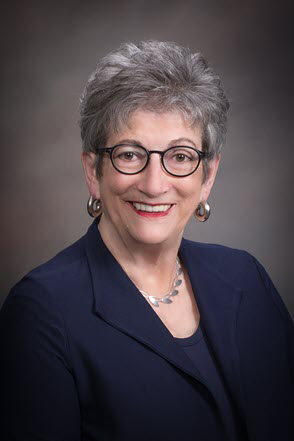
VIRGINIA NOELKE
Three Women in West Texas
Virginia Noelke holds a PhD in American Civilization from the University of Texas at Austin. She served on the Postal Service Citizens’ Stamp Advisory Committee for almost 30 years learning about art and graphics from experts such as Dick Sheaff. She taught history at Angelo State University for thirty-five years, and has written about women in the West, as well as a history of the Cactus Hotel.
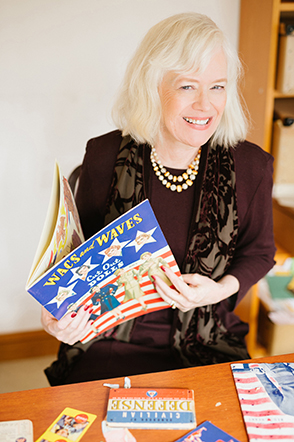
CAROLINE PRESTON
Sylvia Beach: 1920’s Paris Publisher and Bookseller
Caroline Preston’s innovative “scrapbook” novels are created from her extensive collections of ephemera, letters, documents and images. The Scrapbook of Frankie Pratt won a 2012 Alex Award. She has taught fiction at the University of Virginia and workshops on the graphic novel at George Mason and other colleges. She has received fellowships from Yaddo and the Virginia Center for the Creative Arts and is a distinguished artist at the Ragdale Foundation. She has worked as an archivist at the Peabody/Essex Museum and Harvard’s Houghton Library.
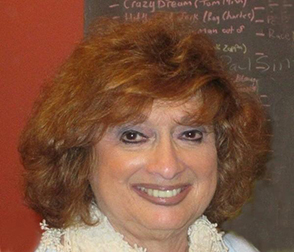
BARBARA RUSCH
Loose Women: Defying the Constraints of Victorian Undergarments
Barbara Rusch is the founder and president of The Ephemera Society of Canada and has served on the Board of Directors of the ESA. She is the recipient of the Ephemera Society (UK) Samuel Pepys Medal, The Ephemera Society of America Maurice Rickards Award and the 2012 Queen Elizabeth II Diamond Jubilee Medal. Listed in Canadian Who’s Who as its only ephemerist, she is a lecturer, collector, and exhibitor of 19th-century ephemera. Her play, The Crossing, featuring ephemera from her collection, was published in 2019 by the Toronto Public Library Foundation.
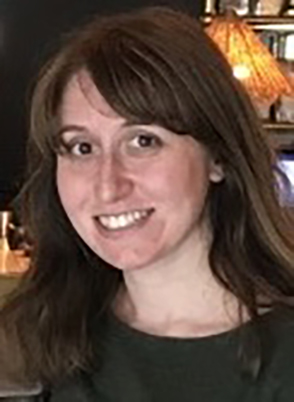
JENNIE WALDOW
Lucy Lippard and Political Art Documentation and Distribution
Jennie Waldow is a PhD candidate at Stanford University. She received her BA from Scripps College and her MA from the Courtauld Institute of Art, and has previously worked at the Museum of Modern Art and the Los Angeles Nomadic Division. She studies Conceptual Art of the 1960s and 1970s, with a focus on ephemera, political art, and Fluxus, and is currently working on a dissertation about the American artist Allen Ruppersberg.
